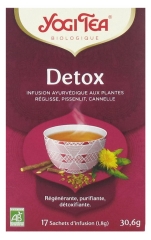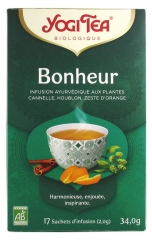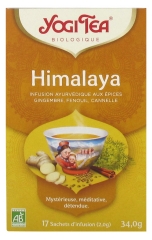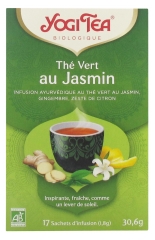Ayurveda Infusions, teas and tisanes:
a guide to well being
Written by Paul Musset, Doctor in Pharmacy | published on | updated on 01/07/2022
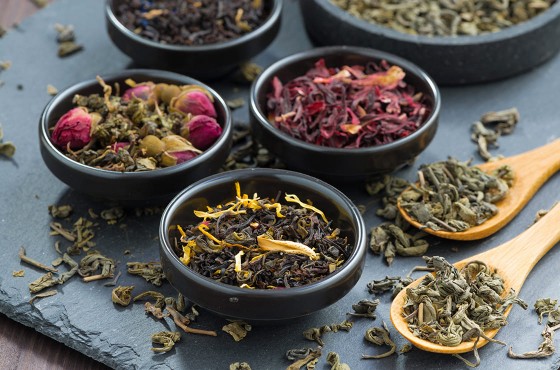
The power of plants is immense. Whether taken in the form of a tea or a tisane, they provide relief from numerous daily ailments : difficulty with sleeping, stress or indigestion. Amongst these natural remedies you will find Ayurveda mixes, plant-based drinks made in the traditions of this Indian medicine.What is Ayurveda? What are the benefits of Ayurveda teas and tisanes? Here you will find all the secrets of Ayurveda medicine.
Ayurveda, what’s it all about?
More than a medicine, a way of life
“The Science of Life”. This is the meaning of Ayurveda in Sanskrit (an ancient Indo-European language). This definition perfectly describes the spirit of Ayurveda which is both a therapeutic and philosophical system. It is a holistic medical approach which believes that there is a direct link between the body and the mind. All therapeutic treatments must treat the whole human being.
In India, where Ayurveda was born over 5,000 years ago, it is still practised widely. It is an integral part of traditional medicine. In Europe, it is mostly considered as an alternative medicine.
The principles of Ayurveda: the role of doshas
Ayurveda sees man in a very schematic way. The human being is made up of:
- 5 mahabhutas which represent 5 elements (water, fire, air, earth, space);
- 3 doshas which represent energy;
- 7 dhatus which represent the tissues which support the structure of the human body;
- 16 srotas which help the doshas circulate around the body.
The doshas are at the heart of the system: it is these which define the essential nature of each individual.
The doshas constantly interact with the 5 elements to maintain equilibrium. When this equilibrium is disturbed, this causes physical and psychological ailments. The practice of Ayurveda is designed to return the doshas to their original equilibrium.
To achieve this, the system mainly relies on massages, meditation and the blending of plants and spices to provide multiple benefits.
Ayurveda diet: an explanation
Diet is an important component of the therapeutic method of Ayurveda. In contrast to western dietary methods it has a different emphasis.
In contrast to classic diets where foods are generally classified by their calorific values, the Ayurveda diet follows the following two principles:
- Quality (pure, stimulating or bland);
- Taste (sweet, salty, bitter…).
Additionally, apart from the content of food, the Ayurveda system focusses on a conscious appreciation of what we are consuming. Listening to one’s body is the Ayurveda approach to diet.
Ayurveda cures to rebalance the body
Specific consultations are regularly organised in order to gain the benefits of Ayurveda medicine. The objective of these consultations is to rebalance the energies (doshas) to achieve a healthy body. An Ayurveda diet is obviously a component often combined with yoga and meditation.
Ayurveda teas and infusions: what are the benefits?
The main plants and spices and their benefits
The Ayurveda system honours plants. They are viewed as the soul of the earth. Many plants and spices are recognised for their positive effects on the doshas. Here is a list of some of the most used plants and spices in the Ayurveda philosophy:
Plants
- Aloe Vera : described as “the elixir of youth”, it possesses digestive properties and helps with the digestion of foods;
- Ginger : it provides stimulation to counter lack of vitality;
- Andrographis: this plant has the same properties as Echinacea, helping to stimulate natural defences;
- Brahmi: or “the plant of wisdom”, it is used for its calming properties and memory stimulation.
Spices
In addition to their power to lift the flavour of plants, they bring their own numerous health benefits (in particular to the digestive system) and contribute in rebalancing the doshas. Among the most well known are:
- Black pepper : it helps to purify the digestive system and aids the absorption of nutrients;
- Cloves : apart from their very distinctive taste, they add flavour to infusions, they sooth stomach ache and possess anti-inflammatory and antiseptic properties;
- Turmeric : it aids the digestive system with its soothing properties;
- Cardamom : it limits the effects of bloating and constipation.
Which Ayurveda drink to choose?
Ayurveda drinks combine the properties of the plants and spices. Rich in taste they are often chosen for their flavour. Apart from taste, they provide numerous health benefits.
Cocooncenter is giving you the opportunity to benefit from these healthy mixes, both for the body and for well-being. We have selected a range of Ayurveda infusions, teas and tisanes 100% organic:
- Boost your natural defences with Yogi Tea defences naturelles;
- Stimulate energy with Yogi Tea energie du the vert;
- Rediscover balance with Yogi Tea harmonie interieure;
- Aid digestion with Yogi Tea digestion.
Make your own recipe for an Ayurveda tisane, it is possible!
Would you like to make your own Ayurveda drink? Here is a 100% natural recipe to make your own digestive tisane.
You will need a pinch of each of the following spices:
- Turmeric (4 g);
- Cloves (3 g);
- Cinnamon (3 g);
- Fennel seeds (3 g);
- Cardamom (3 g);
- Black pepper (2 g).
Mix all the ingredients together, then put them into boiling water and infuse for about 10 mins.
Pour the mixture through a sieve and enjoy your drink.
Whether in the form of a tea or an infusion, an Ayurveda mixture is a true ally to achieve both physical and psychological well-being.
The three key point to remember about Ayurveda infusions:
- Ayurveda medicine seeks essentially to achieve a balance between the different energies with feed the body and the mind;
- Ayurveda infusions are 100% natural and mix plants and spices to achieve health giving properties;
- Spices play a key role in the composition of Ayurveda drinks. They enhance the flavour and aid digestion and absorption of nutrients.




